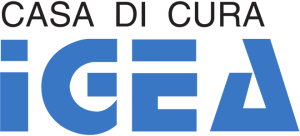Joining forces for Parkinson early detection
Meet the participants
Linkcare Health Services SL
Since 2020 Linkcare ‘s LINKCARE BIOSCREENING™ is the biotechnology unit of Linkcare Health Services dedicated to design Point-of-Care in-vitro-diagnostic devices for screening of diseases where early detection provides a breakthrough improvement in the prognosis.
Current research areas are in the field of early detection of cancer and neurodegenerative diseases.
Casa di Cura IGEA
IGEA is a hospital that welcomes patients, for an intensive rehabilitation program related to different disorders (e.g., neurodegenerative pathologies, central nervous vascular lesions). In particular, the “Department of Neurorehabilitation Sciences” is structured as Operational Rehabilitation Unit including 148 beds affiliated with the Italian National Healthcare System and it encompasses those activities of intensive rehabilitation undergone by inpatients to recover from significant neurological disabilities.
Asociación Parkinson Madrid
APM is a non-profit organisation whose main mission is to provide care and attention to those diagnosed with Parkinson’s disease and their families. It was created in 1994 and declared of Public Interest in 2001. Asociación Parkinson Madrid currently has 1,800 members, 130 volunteers and 55 workers and is the largest association providing social and care services at a national level.
Fondazione European Brain Research Institute Rita Levi
Founded in 2002 by Nobel Laureate Rita Levi-Montalcini, the European Brain Research Institute is a non-profit research center dedicated to understanding higher brain functions, and to the study of the brain at various levels, from molecules, synapses, nerve and glial cells, neuronal circuits to behavior.
SYNLAB Italia S.R.L.
SYNLAB Italy is part of the SYNLAB Group, the leading pan-European clinical laboratory and medical diagnostic services provider, offering a broad range of more than 5,000 types of testing services across all diagnostic disciplines, including genetic and anatomical pathology testing and diagnostic imaging. SYNLAB is processing more than 500 million tests annually and taking care of over 100 million patients a year. The Hub laboratory in Italy (Castenedolo, Brescia) has been accredited by UNI EN ISO 15189. SYNLAB is also active in biomedical research, managing active collaborations with Guy’s and St Thomas’ and King’s College Hospital NHS Foundation Trusts in London and IRCCS SYNLAB SDN in Naples
Universitat Autònoma de Barcelona
The Universitat Autònoma de Barcelona (UAB), in Bellaterra near Barcelona, is a leading public university in Spain. Founded in 1968, it is recognized for excellence in teaching, research, and international talent attraction. In the 2025 QS World University Rankings, UAB ranked 3rd in Spain, 175th globally, and 74th in Europe.
Founded in 1970, the Institute of Biotechnology and Biomedicine (IBB) advances clinically relevant research to improve cancer, neurodegenerative, and immune disease diagnosis and treatment. It comprises 18 research groups within three programs: Applied Proteomics and Protein Engineering, Genomics in Evolution and Disease, and Response Mechanisms to Stress and Disease.
Spitalul Universitar De Urgenta Bucuresti
Renowned as one of the largest emergency medical facilities in Romania, boasting a Neurology Department equipped with 120 beds. This department is dedicated to the care of patients suffering from a wide array of neurological conditions, including but not limited to stroke, multiple sclerosis, Parkinson’s disease, ALS, neuro-immunological disorders, and treatment-resistant epilepsy.
Aristotelio Panepistimio Thessalonikis
Papanikolaou Hospital Department of Neurology features several programs focused on combating neurodegeneration and facilitating neural repair, both on the clinical and research fronts. The mission of the Department is to transform cutting-edge science into novel therapies and diagnostics that directly benefit individuals affected by neurodegenerative diseases.
Institut National De La Sante Et De La Recherche Medicale
Founded in 1964, Inserm is a public scientific and technological institute which operates under the joint authority of the French Ministries of Health and Research. The institute is dedicated to biomedical research and human health, and is involved in the entire range of activities from the laboratory to the patient’s bedside. It also partners with the most prestigious research institutions in the world that are committed to scientific challenges and progress in these fields.
Instytut Psychiatrii I Neurologii
The Institute of Psychiatry and Neurology was established in 1951 in Warsaw. Currently, it is a leading scientific centre in Poland specializing in the development of new methods for treating and rehabilitating psychiatric and neurological disorders. It has modern diagnostic and clinical facilities enabling the diagnosis and treatment of neurological and psychiatric diseases. It aids in hospital conditions and conducts consultations in outpatient settings.
Universidad de Oviedo
The University of Oviedo is the public institution of higher education and research of the Principality of Asturias. With more than 410 years of history, it has a complete range of degrees adapted to the European Higher Education Area (EHEA) in all branches of knowledge, bilingual itineraries, double degrees with international universities and Erasmus Mundus and interuniversity master’s degrees and in collaboration with more than 250 companies.
University of Newcastle
The University of Newcastle is known for excellence in translational medicine, clinical innovation, and health equity. The university is leveraging this capability in a broad range of fields including neuroscience, cancer, inflammation, and Indigenous health, to drive advances in medicine. Its training program is globally recognised for producing highly skilled, research-focused healthcare professionals. As a non-EC partner it brings expertise and intellectual property for innovative liquid biopsy methodologies employed in NDEVs isolation for brain disorder diagnostics.

This project has received funding from the European Union’s HORIZON-HLTH-2024-DISEASE-03-two-stage program under grant agreement No 101156370.
Views and opinions expressed are however those of the author(s) only and do not necessarily reflect those of the European Union or HORIZON-RIA. Neither the European Union nor the granting authority can be held responsible for them.














